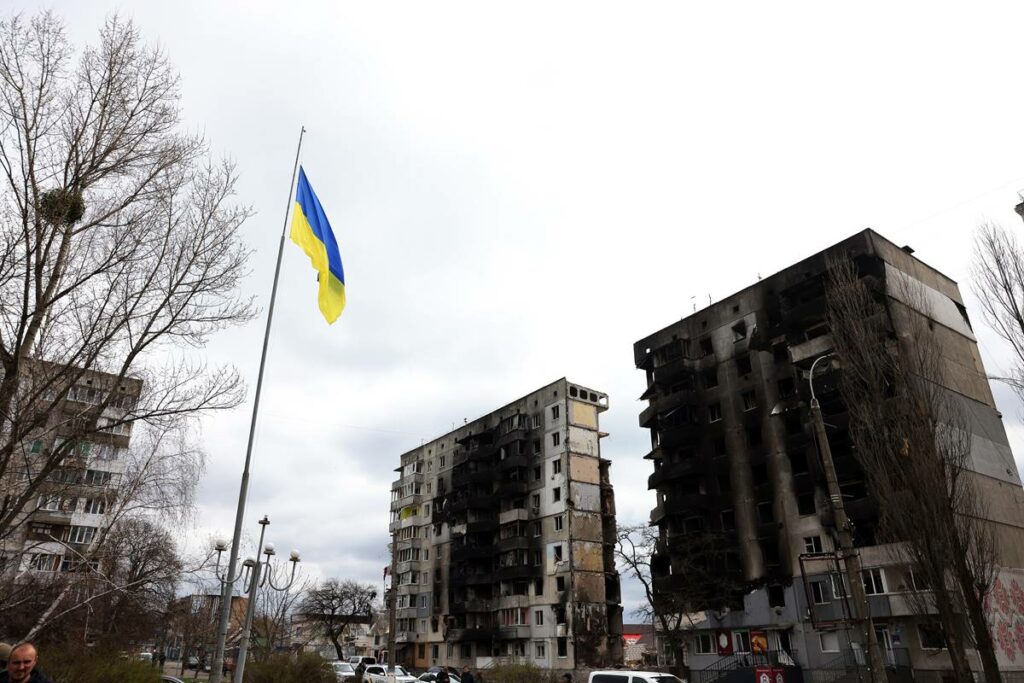The Council of the European Union (Council of Ministers) adopted on Friday a package of new measures intended to step up pressure on Russia in response to its ‘continuing war of aggression against Ukraine and the gravity of the current escalation against civilians and civilian infrastructure’.
“After food and hunger, Putin is now weaponizing the winter, by deliberately depriving millions of Ukrainians of water, electricity and heating,” commented Josep Borrell, High Representative for Foreign Affairs and Security Policy. “We will continue targeting the economy and against those who are instrumental in this brutal war.”
By this new package, hundreds of additional entities and individuals have been added to EU’s sanction list. The package includes among others a major trade component with new export controls and restrictions on dual-use goods and technology as well as goods and technology that can contribute to the technological enhancement of Russia’s defence and security sector.
This includes drone engines, camouflage gear, additional chemical/biological equipment, riot control agents and additional electronic components found in Russian military systems on the battlefield. Furthermore, the EU will expand the export ban on aviation and the space industry related goods and technology to include aircraft engines and their parts.
Comprehensive sanctions package
The EU will reinforce the sanctioning of investments by additionally prohibiting new investments in the Russian mining sector, with the exception of mining and quarrying activities involving certain critical raw materials. Export credit guarantees for investments in Russia have already been covered by previous sanction packages, a senior Commission explained on Friday.
To disrupt Russia’s disinformation campaigns and propaganda, the Council will suspend the broadcasting licences of additional media outlets (NTV/NTV Mir, Rossiya 1, REN TV and Pervyi Kanal) that are under control of the Russian government. Providing consulting services to Russia in advertising, market research, public opinion polls and product testing and technical inspections services will be banned.
In the banking sector, three additional Russian banks are sanctioned. Furthermore, EU nationals will be forbidden from holding any posts on the governing bodies of all Russian State-owned or controlled legal persons, entities or bodies located in Russia.
A controversial issue is the trade in agricultural and food products, including wheat and fertilisers, between third countries and Russia. The trade is exempted from sanctions but Russian businessmen and oligarchs who might be involved in the trade are not as they have been listed by the EU and their assets frozen.
In order to avoid disruptions in the payment channels for agricultural products, the Council decided to introduce a new derogation allowing to unfreeze assets of, and to make funds and economic resources available to, certain individuals who held a significant role in international trade in agricultural and food products prior to their listing.
The decisions on applying the derogation will be taken by the competent national authorities in the member states after consultation with the Commission. At a technical briefing on Friday, a Commission official doubted that the derogation will be “overused”.
Specifically, the EU has added almost 200 additional individuals and entities to its list of persons subject to a freezing of their assets. This includes the Russian armed forces, as well as individual officers and defence industrial companies, members of the State Duma and Federation Council, ministers, Russian proxy authorities in occupied areas of Ukraine and political parties, among others.
Iranian drones to Russia?
According to the Commission’s press release, the direct exports of drone engines to Russia and the export to any third countries, such as Iran, where there is a suspicion that they will be used in Russia, is now restricted”. However, at the technical briefing on Friday, a Commission official told The Brussels Times that there is no direct ban on export to Iran.
The sanctions against Iran for its delivery of drones to Russia and other military cooperation, fade compared to the massive sanctions against Russia although they have the same purpose – to deprive Russia of income to finance its war machine and to disrupt the supply of weapons to continue its indiscriminate bombardment of civilian targets in Ukraine.
At its meeting on 12 December, the Foreign Affairs Council adopted a new round of sanctions against Iran because of the on-going suppression of human rights in the country and its delivery of drones Russia. However, the latter part of the sanctions only added four individuals and four entities to the list of those few already subject to EU’s restrictive measures.
The adopted sanctions hardly match the Councils strongly worded conclusions on Iran. In its conclusions, the Council wrote that “the EU notes with great concern the reports of Iranian weapons, including drones, being manufactured with components of international origin, including from Europe, and is considering the appropriate measures to take”.
The Council strongly condemned and considered unacceptable any type of Iranian military support to Russia, which it describes as a violation of international law and a UN Security Council decision. It also condemned “Iran’s continued destabilising activities in and around the Middle East” and reiterated its “clear determination that Iran must never develop or acquire a nuclear weapon.”
While there is a growing awareness about Iran’s military support to Russia, the issue is not effectively addressed by sanctions against Iran. Sanctions also reflect the will of EU member states to confront Iran and are only one part in EU’s “tool box”, according to a Commission spokesperson. Josep Borrell, EU’s foreign affairs chief, still wants to keep a door open for diplomatic dialogue with Iran.
As regards the EU's sanctions against Russia, they are proving effective, according to the Commission. They are damaging Russia's ability to manufacture new weapons and repair existing ones, as well as hinder its transport of material. The relevant legal acts have already been published in the Official Journal of the EU.
M. Apelblat
The Brussels Times

